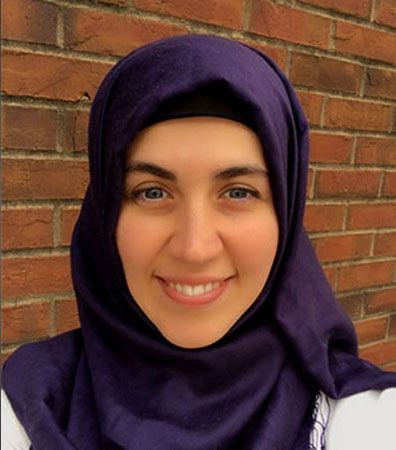 Ayse ZengulPersonal life events have set a CEDHARS associate scientist down a path of fulfilling research, and now the Ph.D. student will continue her work with the aid of a prestigious fellowship at the National Institute on Disability, Independent Living, and Rehabilitation Research.
Ayse ZengulPersonal life events have set a CEDHARS associate scientist down a path of fulfilling research, and now the Ph.D. student will continue her work with the aid of a prestigious fellowship at the National Institute on Disability, Independent Living, and Rehabilitation Research.
Ayse Zengul, a Ph.D. student in nutrition sciences, was awarded the Switzer Research Fellowship, which aims to build research capacity by providing support to highly qualified individuals, including those with disabilities, to perform research on rehabilitation, independent living and other experiences and outcomes of individuals with disabilities.
The program provides two categories of fellowships: merit fellowships and distinguished fellowships. Zengul was awarded a merit fellowship, which requires applicants to be in early stages of their career in research and have either advanced professional training or experience in independent study in an area directly pertinent to disability and rehabilitation. So, Ph.D. students, postdoctoral students, and assistant professors were eligible for the merit fellowship.
Zengul is among only a handful of Ph.D. students awarded this fellowship nationally over the past 10 years. Jia Li, postdoctoral fellow in the UAB department of physical medicine and rehabilitation and another CEDHARS affiliate, previously was awarded the Switzer fellowship.
As a Ph.D. student, it is hard to find grants because they’re usually for postdocs or professors, but I realized this grant is also open to Ph.D. students,” Zengul said. “I think it’s important to send your work to a relevant place. Because my work is disability focused, sending it to the NIDILRR Switzer Fellowship was a better idea because it is a disability-related platform.
The fellowship, which totals $70,000 over a one-year period, will fund Zengul’s research in developing a personalized nutrition recommendation expert system, PNRES, for people with physical disabilities.
According to Zengul, the nutritional needs of people with physical disabilities have been understudied. Recommendations in the nutritional guidelines for the general population are likely inappropriate because of profound alterations in body composition associated with the individual’s condition.
Therefore, Zengul aims to generate consensus-based nutrition guidelines for adults with spinal cord injury, cerebral palsy, and arthritis who consume food through normal digestion and live in a non-clinical setting.
Native to Turkey, Zengul originally studied international studies and English literature as an undergraduate at UAB. However, a burgeoning interest in science brought her back to UAB to earn a master’s degree in nutrition sciences.
Her growing interest in disability-related research as well as her sister-in-law’s diagnosis of ALS pushed her toward continuing her studies as a Ph.D. Zengul studies under Dr. Mohanraj Thirumalai, associate professor and CEDHARS affiliate and director of information and communication technology at the UAB/Lakeshore Research Collaborative.
Zengul’s PNRES will utilize disability-inclusive nutrition guidelines developed using a Delphi methodology, which allows a panel of experts to reach a consensus.
Although CDC encourages disability inclusion in every aspect of life, including receiving adequate healthcare, none of the existing nutrition recommendation systems or meal planner apps are disability-inclusive.
The PNRES Zengul aims to generate will utilize online technologies to optimize the diet for people with physical disabilities. Such a disability-inclusive software would also enable health professionals to deliver practical, accessible and personalized nutrition guidance for this population.
Zengul said the PNRES will be connected to a commercial ingredient and recipe database and will be able to perform extensive recipe searches based on the dietary recommendation and on the users’ preferences and medical conditions.
Not only will the PNRES reduce or prevent nutrition-related health problems and improve quality of life for people with disabilities, but it will also increase communication between people with disabilities and health professionals.
Zengul believes you are successful only if you surround yourself with the people who can take you to the next level, and she credits UAB’s collaborative atmosphere and her mentor Thirumalai for doing just that with the Switzer Fellowship.

